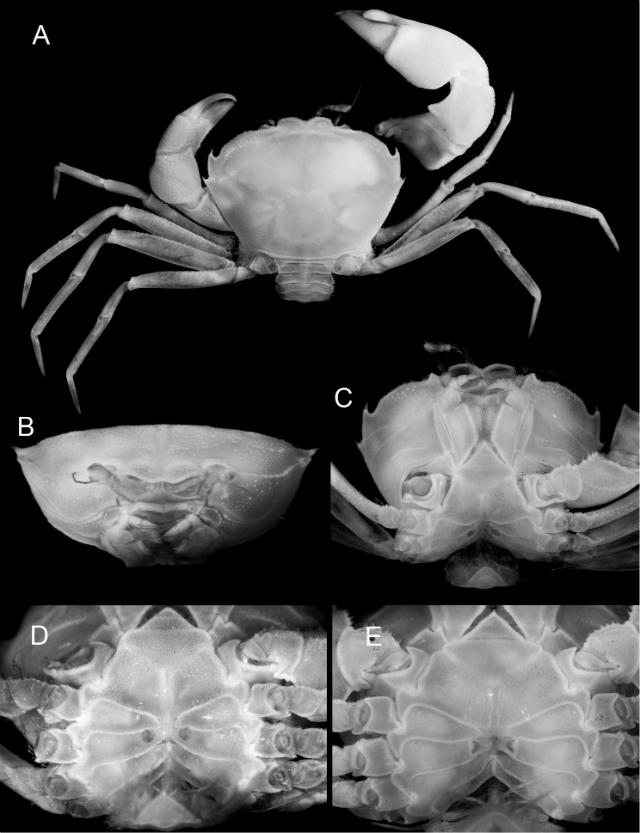Pinoy discovers new Harry Potter crab species
Two scientists have just identified a new species of crab and named it after an unsung hero of biology—and two characters from JK Rowling's famous Harry Potter series.
Filipino marine biologist Jose Christopher Mendoza and his colleague, Peter Ng, have just published a paper officially identifying Harryplax severus as a new species of crab that inhabits the coral rubble off the coast of Guam.
"H. severus is only the second member of its family (Christmaplacidae) to be described. It has reduced eyes, long and slender legs, and enlarged antennae—all adaptations for living in dark cavities and cave-like formations in the sea," Mendoza told GMA News Online.

Mendoza and Ng made the serendipitous discovery after looking through a collection of specimens gathered in the early 2000's by the late Harry Conley, a marine enthusiast who painstakingly scoured the shores of Guam for new species.
"(Conley) had the habit of digging deep into the shallow water rubble fields, sometimes to depths of 30 meters, in his search for shells. In the process, he uncovered many rare and novel species," Mendoza and Ng wrote in their paper, published on January 23 in ZooKeys.
It made sense to the two researchers to name the new species after Conley in honor of the latter's unsung contributions to marine biology.
But for Mendoza, who also happens to be a Harry Potter buff, it was also an opportunity to weave a richer allusion to both the intrepid field collector as well as to his favorite fandom.
The species name "severus"—a Latin word from which the English "severe" is derived—also happens to be the name that JK Rowling gave to her much beloved anti-hero, Severus Snape.
"'Severus' means 'harsh and rigorous.' Harry Conley backbreakingly dug out large craters in the coral rubble at low tide. Imagine doing that with the sun beating down your back! But as a reward, several new species of crustacean were discovered. H. severus is just the latest discovery," Mendoza explained.
He also expressed hope that the discovery could boost public interest in the never-ending search for new species.
"I wouldn't be surprised if there are hundreds or even thousands more species that are yet to be discovered and described in such habitats or environments. The Philippines is no different; my colleagues and I have described quite a few marine and freshwater crabs from there, with more in the pipeline," Mendoza enthused.
"But with global environmental change, it's a race against time. Collectors don't always know they have a new species when they collect them; it takes someone with the proper training to determine whether a species is new—and there aren't that many (of us). Too many species, too few taxonomists!" he concluded. — GMA News




